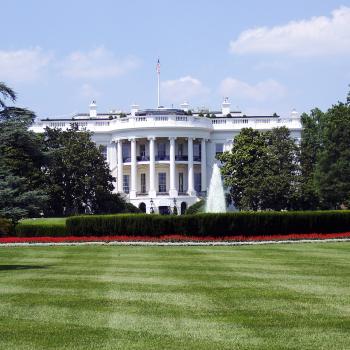In a 2009 piece in The Weekly Standard, Sam Schulman argues that gay marriage replicates “a very limited, very modern, and very culture-bound version of marriage. Gay advocates have chosen wisely in this. They are replicating what we might call the ‘romantic marriage,’ a kind of marriage that is chosen, determined, and defined by the couple that enters into it.”
This isn’t what marriage has been through most of human history. Instead, marriage has taken the particular shape it has because it is part of a larger network, the kinship system.
One of the things marriage has done is to force men to respect the chastity of women until sex becomes socially acceptable within marriage. Schulman thinks that “it is a scandal that homosexual intercourse should ever have been illegal,” but adds that now that it is legal “there remains no extra sanction—the kind which fathers with shotguns enforce upon heterosexual lovers.” He comments sardonically, “I am not aware of any gay marriage activist who suggests that gay men and women should create a new category of disapproval for their own sexual relationships, after so recently having been freed from the onerous and bigoted legal blight on homosexual acts. . . . [D]eclaring gay marriage legal will not produce the habit of saving oneself for marriage or create a culture which places a value on virginity or chastity (concepts that are frequently mocked in gay culture precisely because they are so irrelevant to gay romantic life).”
Because gay marriage doesn’t bear the burdens of virginity and chastity, it doesn’t bear the burdens of real marriage which, Schulman argues, even today are “honored in spirit if not in letter, creating for women (women as modern as Beyoncé) the right to demand a tangible sacrifice from the men who would adore them.”
Because gay marriage detached marriage from the kinship system, incest prohibitions have no weight: “If Tommy marries Bill, and they divorce, and Bill later marries a woman and has a daughter, no incest prohibition prevents Bill’s daughter from marrying Tommy. The relationship between Bill and Tommy is a romantic fact, but it can’t be fitted into the kinship system.”
In sum, “in gay marriage there are no virgins (actual or honorary), no incest, no illicit or licit sex, no merging of families, no creation of a new lineage. There’s just my honey and me, and (in a rapidly increasing number of U.S. states) baby makes three.”
Schulman doesn’t think the experiment will last: “When, in spite of current enthusiasm, gay marriage turns out to disappoint or bore the couples now so eager for its creation, its failure will be utterly irrelevant for gay people. The happiness of gay relationships up to now has had nothing to do with being married or unmarried; nor will they in the future.”
The losers will be everyone else, everyone who benefits from the various restrictions, obligations, and sacrifices that marriage imposes: “As kinship fails to be relevant to gays, it will become fashionable to discredit it for everyone. The irrelevance of marriage to gay people will create a series of perfectly reasonable, perfectly unanswerable questions: If gays can aim at marriage, yet do without it equally well, who are we to demand it of one another? Who are women to demand it of men? Who are parents to demand it of their children’s lovers—or to prohibit their children from taking lovers until parents decide arbitrarily they are ‘mature’ or ‘ready’? By what right can government demand that citizens obey arbitrary and culturally specific kinship rules—rules about incest and the age of consent, rules that limit marriage to twosomes? Mediocre lawyers can create a fiction called gay marriage, but their idealism can’t compel gay lovers to find it useful. But talented lawyers will be very efficient at challenging the complicated, incoherent, culturally relative survival from our most primitive social organization we call kinship. The whole set of fundamental, irrational assumptions that make marriage such a burden and such a civilizing force can easily be undone.”
This is a powerful argument, but doesn’t give sufficient weight to a point that Schulman acknowledges early on: The fact that “romantic marriage” was invented by heterosexuals, and the detachment of sex from marriage and marriage from kinship was accomplished long before anyone began seriously proposing gay marriage. Gay marriage may further damage marriage; but heterosexuals damaged marriage nearly beyond recognition all on our own.















